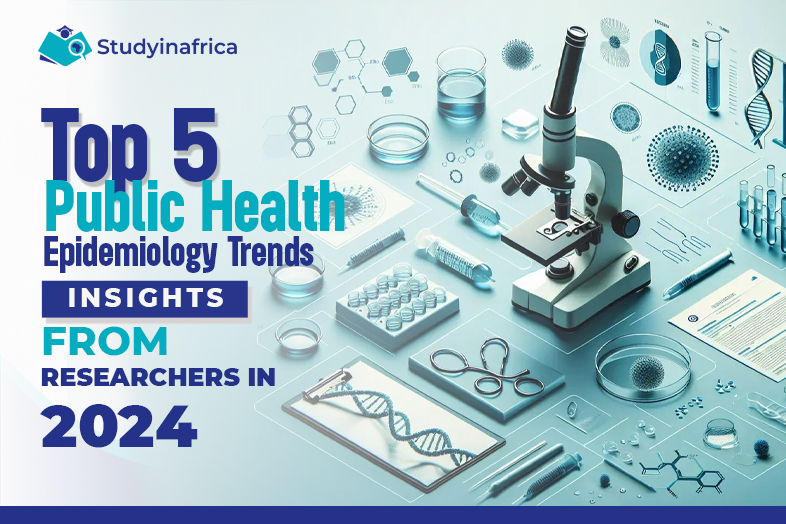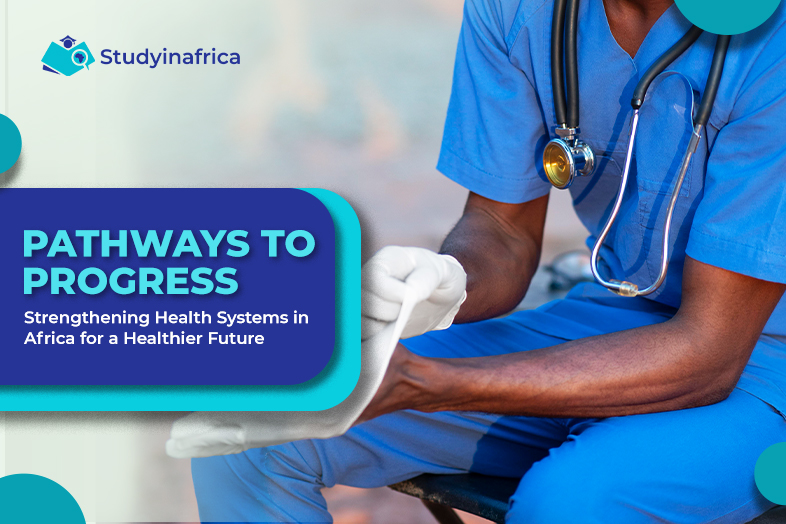
Blog Summary
The global impact of climate change goes beyond rising temperatures and melting ice caps. It directly affects human health, bringing new challenges like heat-related illnesses, the spread of vector-borne diseases, and food insecurity. These challenges are pushing public health education to evolve rapidly. By 2025, this evolution will redefine how future health professionals are trained, enabling them to tackle climate-related health issues effectively. This blog explores the critical intersection of climate change and public health education, detailing its influence on curriculums, research, and career opportunities.
- The Strengthening Relationship Between Climate Change and Public Health
- Why Climate Change Demands a New Public Health Curriculum
- What to Expect in Public Health Education by 2025
- How Students Can Prepare for a Climate-Focused Career
- The Career Impact of Climate Change on Public Health Professionals
- South Africa: A Key Player in Public Health Education
- Learning Through Practical Experience
- How Climate Change Is Redefining Global Public Health
- Conclusion
The Strengthening Relationship Between Climate Change and Public Health
The connection between climate change and public health is undeniable. Severe weather events, including floods and droughts, disrupt healthcare infrastructure and worsen chronic conditions. Rising temperatures have expanded the habitats of disease-carrying Arthropods like mosquitoes, increasing the risk of diseases like malaria and dengue fever.
Public health education is shifting to address these realities. Future professionals are learning to analyze and mitigate health risks caused by changing environmental factors, creating a generation of experts capable of addressing both immediate and long-term health crises.
Why Climate Change Demands a New Public Health Curriculum
Emerging Health Risks
Amid the growing frequency of severe weather events, public health professionals need tools and strategies to manage disasters. Floods can contaminate drinking water, while droughts reduce agricultural yields, contributing to malnutrition. Programs in public health education must equip students to tackle these threats effectively.
Mental Health Challenges
Climate change also impacts mental health. Communities devastated by natural disasters face stress, anxiety, and depression. Public health courses are expanding to include the psychological effects of climate change, preparing students to provide comprehensive care for affected populations.
Technological Advancements
Public health curriculums are incorporating advanced tools like predictive analytics and geographic information systems (GIS). These technologies help monitor the spread of diseases and model future climate-health scenarios, making them essential components of modern education.
What to Expect in Public Health Education by 2025
Climate-Focused Modules
Many universities are introducing courses specifically addressing the health impacts of climate change. Programs offered by distance learning universities South Africa have become popular for their flexibility and affordability, allowing students worldwide to specialize in climate-resilient public health systems.
Research-Driven Learning
PhD programs are increasingly prioritizing research topics related to climate change. For students exploring a PhD in Public Health benefits, these programs offer opportunities to tackle global challenges like infectious diseases and disaster management.
By focusing on climate-health intersections, universities are preparing students for roles that require innovative thinking and global collaboration.
How Students Can Prepare for a Climate-Focused Career
1. Explore Advanced Degrees
Advanced degrees, such as a PhD in Public Health, play a vital role for students aspiring to address climate-related health challenges. Many institutions now offer flexible study options, and distance learning degrees in South Africa are becoming increasingly popular, enabling students to gain advanced qualifications while accommodating their personal and professional commitments.
For those considering their options, understanding PhD in Public Health eligibility criteria is essential. Many institutions prioritize candidates with a passion for researching and solving real-world problems linked to climate change.
2. Focus on Research Opportunities
South Africa, with its diverse ecosystems and world-class universities, provides an excellent environment for climate-related research. Students studying at the best universities in South Africa can gain hands-on experience while contributing to groundbreaking projects.
3. Pursue Online Learning Options
Flexible learning opportunities through online learning universities in South Africa make it easier for working professionals to transition into climate-focused public health roles. These programs ensure students receive the same quality of education as on-campus counterparts.
The Career Impact of Climate Change on Public Health Professionals
Climate change has created new career paths for public health graduates. Here are a few roles emerging in this space:
- Disaster Preparedness Specialist: Focus on mitigating health risks during natural disasters.
- Environmental Epidemiologist: Study disease patterns influenced by climate changes.
- Sustainable Health Advisor: Help organizations adopt eco-friendly practices to protect public health.
Graduates with advanced degrees in public health can expect promising prospects in terms of both impact and income. Many phd in public health jobs offer competitive salaries and opportunities for global impact, making the field highly rewarding.
South Africa: A Key Player in Public Health Education
South Africa has become a hub for climate-focused education. With affordable programs and a strong emphasis on research, the country attracts students from around the world to study in South Africa. Institutions such as the University of Cape Town and Stellenbosch University are ranked among the best universities in South Africa, offering specialized programs in public health.
Additionally, South Africa’s diverse ecosystems provide a unique opportunity for students to study the health impacts of climate change firsthand. Whether through traditional learning or distance learning universities South Africa, students can gain invaluable knowledge and experience.
Learning Through Practical Experience
Public health curriculums are shifting toward hands-on learning. From internships in disaster-stricken areas to real-world research on climate-related diseases, students are applying classroom knowledge to practical scenarios. Emphasizing experiential learning bridges the gap between theory and practice, ensuring that graduates are well-equipped to face the challenges ahead.
How Climate Change Is Redefining Global Public Health
The global nature of climate-related health challenges has made collaboration across countries essential. According to World Health Organization, climate change is projected to cause approximately 250,000 additional deaths per year between 2030 and 2050 due to malnutrition, malaria, diarrhea, and heat stress. Institutions worldwide are working to create standardized curriculums that emphasize global solutions, making public health education a key driver of international cooperation.
For students pursuing a PhD in public health careers, the ability to think globally while acting locally is a highly sought-after skill. These programs encourage students to tackle health challenges that transcend borders, ensuring their expertise is impactful on a global scale.
Conclusion
By 2025, the field of public health education will have undergone a transformation, Equipping students to tackle the increasing challenges brought about by climate change. Universities are introducing climate-focused courses, emphasizing research, and offering flexible learning options like distance learning degrees South Africa.
For students and professionals alike, the intersection of climate change and public health education represents an opportunity to make a meaningful difference. Whether studying on-campus or at online learning universities in South Africa, the upcoming generation of public health experts will be vital in shaping a healthier and more sustainable future.
FAQs


